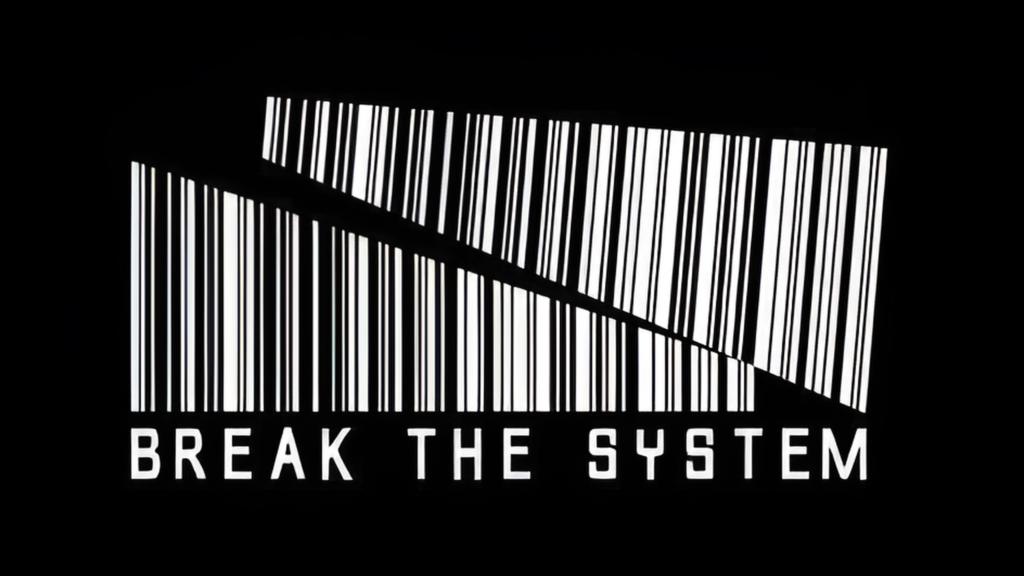Reduced to Numbers

Tattooed on his arm, Auschwitz prisoner number 119104. That was Viktor Frankl’s number. That’s what the Nazis did—they reduced human beings to numbers, nails, and screws. They calculated that the average body had enough iron to make a handful of nails, enough fat to produce a few bars of soap, enough skin to make a lampshade. Men and women stripped of names, faces, stories, and souls—reduced to raw materials, to data points, to “nothing but.”
Fine. That was reductionism at its most evil extreme. But here’s the question: how did we get there? Not overnight. Not all at once. It came slow. Methodical. The steady erosion of humanity, piece by piece, until it no longer felt like a crime to turn a man into a number. Reduction of the world around us, reduction of the people within it, until nothing sacred remained.
And if you think our world isn’t marching down the same path of numbers, think again.
Frankl warned us: “Today’s nihilism no longer unmasks man as nothingness but masks him as nothing-but.” That’s the danger. To see a man as “nothing but” biology, “nothing but” chemistry, “nothing but” a paycheck, “nothing but” a problem to fix.
How Reductionism Shows Up in a Man’s Life
Look around. We already live by the scoreboard:
- A man is reduced to his salary, his net worth, his LinkedIn title.
- A woman is reduced to her weight, her likes, her filtered photos.
- Children are reduced to test scores, GPAs, athletic stats.
- Relationships are reduced to swipes, streaks, followers, and views.
- Health is reduced to steps tracked, calories burned, and heart rate zones.
- Worth is reduced to numbers on a scale, a spreadsheet, or a social feed.
We may not be building lampshades from skin, but we are building a world where souls are flattened into spreadsheets. A world where meaning is traded for metrics. A culture where men and women become products, where life itself is judged by algorithms, clicks, and quarterly reports.
That’s reductionism. That’s “nothing-but-ness.” And it’s killing us slowly, one number at a time.
The I–It Trap: Transactional Living
Martin Buber gave us language for this sickness. He called it I–It.
In I–It, you don’t meet life—you use it. Everything becomes a tool. Everyone becomes an object.
- Money: not energy or responsibility, just a scoreboard. Another number to flex or a distraction from the void.
- Women: not mystery or partner, just conquest, swipes, porn, trophies. What can I take from her?
- Experience: not communion, just consumption. Did it serve me? Did I win?
That’s I–It. You may look powerful on the outside, but inside you’re brittle. Armored like a dragon. Untouchable, but also unreachable.
The I–Thou Alternative: Encounter Over Transaction
The way out is I–Thou.
In I–Thou, you stop reducing and start encountering. You see people, money, and the world itself as sacred.
- Money: not just cash flow, but lifeblood. A way to create, to serve, to bless.
- Women: not an object, but a mirror. Sex isn’t scratching an itch, it’s communion, fire, transcendence.
- Experience: every moment a doorway. The sun on your skin. Your child’s laugh. The grind of the gym. The silence of prayer.
In I–Thou, life stops being a hustle and starts being holy.
Why Brotherhood Breaks the I–It Cycle
Most men spend their lives stuck in I–It and only stumble into I–Thou when life cracks them open. A birth. A death. A breakdown. Something forces them to see differently for a moment before they collapse back into reduction.
The call of real manhood is to flip that script. To live in I–Thou as your baseline. To encounter people, not use them. To honor life instead of consuming it. Yes, you’ll still need I–It. You’ll still fix the faucet, file the taxes, close the deal. But that is not where meaning is found. That is not where men come alive.
This is why Men’s Peer Groups matter. They are training grounds for I–Thou living. They teach men—often for the first time in their lives—how to sit across from another man and not see competition, not see a rival, not see a paycheck, a title, or a threat. To look at him and not reduce him to “nothing but.” To see him as Thou. To honor his story. To witness his pain. To celebrate his fire.
Because until you learn to see the man beside you as more than a number, you will never be able to see your wife, your children, or yourself as anything more either.
The Challenge for You
That’s the invitation, brother. To stop living reduced. To stop being “nothing but” a number on a paycheck, a notch on a bedpost, a follower in a feed. To stop reducing your own soul to what it produces, and to stop reducing the people around you to what they can do for you.
And you don’t get there alone. No man does.
That’s why Men’s Peer Groups exist. They are where men unlearn the I–It trap and practice I–Thou in real time. Where you stop posturing and start encountering. Where the man across from you is no longer competition, transaction, or threat—but mirror, ally, and brother.
If you’re ready to stop living reduced and start living real, this is your call. Step into a Men’s Peer Group. Practice I–Thou. Stop being a number. Start being a man.
